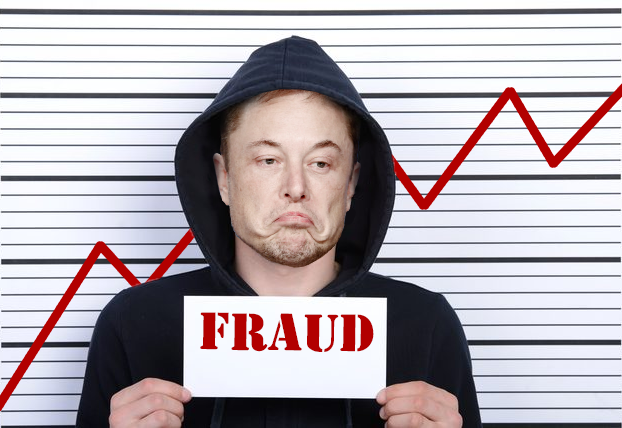
Last week, Tesla CEO Elon Musk proposed a radical idea over Twitter:
To take the stock off the Nasdaq and turn it into a private company. While many investors were impressed (the stock immediately jumped 7%), others were not.
In fact, two lawsuits have now been filed against both Tesla and Musk accusing them of securities fraud, a serious criminal offense — with the possibility of jail time.
Who would make such an accusation?
The answer:
Short sellers.
And there are lots of these traders wrapped up in TSLA. In fact, it’s the most shorted security on the Nasdaq.
So there are lots of upset traders right now, as you might expect, since short sellers make money when a stock drops in price (rather than increasing like with a long position). If the stock price goes up (which Tesla did after the announcement), these short sellers will lose money.
And in the case of TSLA, they have already lost a nice chunk of change but in (their opinion) an unfair way.
More than 34 million shares are currently in short positions, representing almost 21% of all outstanding Tesla shares.
That’s a lot of dough. To be specific, it’s about $12.5 billion at current share price, so just a small move upwards could cost Tesla bears million of dollars. Specifically, they lose about $240 million right now for every 2% gain in the stock.
Even though it has sold-off slightly, TSLA is still up about 3.6% since the tweet was made. And don’t forget about short interest that has to be paid on some of these bearish bets.
So yes, the bears are pretty upset (and possibly with good reason)…
But do they have enough of a case to take Musk to court?
This is where it’s going to get dicey. One of the two lawsuits filed claims that Musk’s tweet artificially inflated TSLA by disseminating “false and misleading information.” The lawsuit goes on to claim that the tweet was a “nuclear attack” on short sellers. Both lawsuits are trying to gain class-action status. After all, there are a lot of bearish traders on this stock.
The claim that the tweet was an attack on bearish Tesla trades does seem to have some merit. After all, Musk has used Twitter before to criticize short positions on the company.
But what about the all-important legal implications of this story? What do federal securities regulations have to say? And did Musk’s tweet go outside of legal boundaries?
First, we need to look at the tweet exactly as it was written:

The SEC has already ruled that a company can use social media to put information out for consumption as long as investors know where to look for it. So, the feds probably won’t have any problem with Twitter.
Instead, the focus of the lawsuit is going to be on the second sentence: “Funding secured.” Who has put up funds for the privatization deal? That’s the $64 million question here.
The information that’s put out to the public has to be true. The plaintiffs are going to want to see evidence in court that Tesla actually had this funding secured when the tweet was made.
We do know some notable financial institutions definitely do not qualify. Citigroup and JPMorgan Chase have said they haven’t been involved with Musk’s privatization plan. Interested parties have looked, but haven’t found any evidence, that Fidelity, a big investor in Tesla, hasn’t offered any funds, either.
On Monday, Tesla’s website posted an article by its chief executive claiming that he had multiple conversations with managers of Saudi Arabia’s sovereign wealth fund, and that these meetings were the source of the “funding secured” statement. Musk also claimed to have “a number of other investors” who he is in talks with.
A federal judge is definitely going to want to know who these potential investors are and Tesla is going to have to reveal this information under oath.
Until then, we’ll continue to watch the share price, which seems to be stuck in a rut. There’s a major resistance line on the stock right now around $380, and TSLA has bounced off this line three times in the past 14 months – once in June 2017, again in September 2017, and a third time after the tweet. All of these are well below the $420 target Musk threw out there on Twitter, which the company may not hit for a long, long time.
Why?
Because despite the euphoria over Musk’s tweet, TSLA wasn’t even able to break through its all-time high of $389.
Regardless of the outcome of this legal battle, the charts do seem to favor a bearish movement, barring anything truly spectacular in Tesla’s future. So instead of waiting for the results of these lawsuits, it may be wiser to just watch TSLA’s price action in order to gauge where it’s headed.








